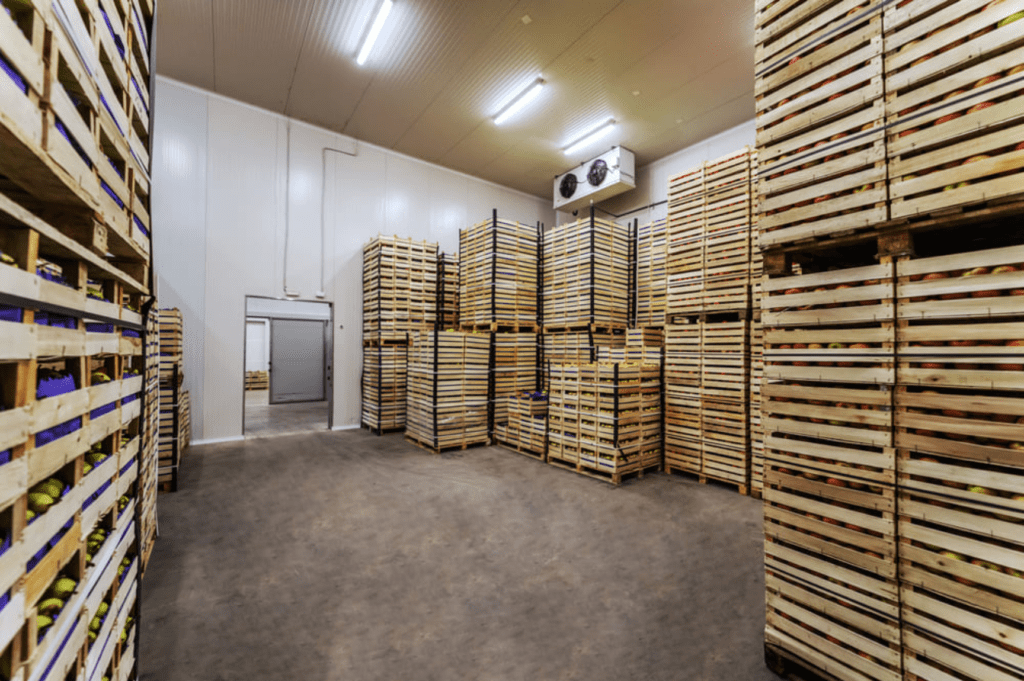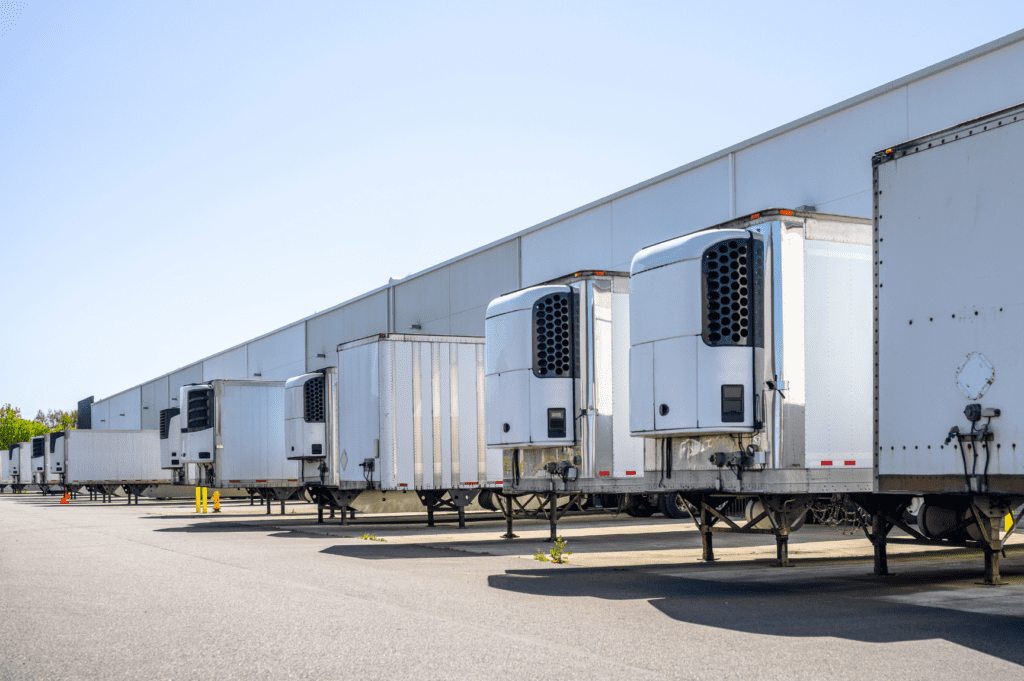Cost-Effective Cold Storage Warehousing Across the US, Canada & Mexico
Cold Storage Solutions Built for Your Business
OLIMP connects you with a trusted network of cold storage warehousing facilities across the country, specializing in refrigerated warehouse and frozen storage solutions. Our partners offer value-added services like blast freezing, case picking, and cross-docking—all supported by advanced technology and industry expertise. Whether you need short-term flexibility or long-term capacity, we deliver efficient, cost-effective storage tailored to your business.
Our cold storage warehouses are positioned near major transportation hubs and distribution centers, ensuring fast access and seamless logistics. From automated storage systems to temperature-controlled handling, we provide scalable solutions that grow with your needs.
How Cold Storage Warehouses Protect Your Products
Cold storage act as giant refrigerators for businesses, using precise temperature control to keep perishable goods fresh and safe. Advanced refrigeration systems constantly monitor and adjust conditions to prevent spoilage while preserving quality – whether you’re storing fresh groceries or life-saving medicines.
The Two Types of Cold Storage
1. Refrigerated Warehouses (2°C to 8°C)
- Perfect for: Fresh produce, dairy, beverages
- How it helps: Slows ripening and bacteria growth while keeping items chilled (not frozen)
- Key benefit: Extends shelf life without altering texture or flavor
2. Frozen Warehouses (-18°C to -25°C)
- Ideal for: Meats, seafood, frozen meals, ice cream
- How it works: Deep-freeze conditions lock in freshness and prevent bacterial activity
- Critical for: Products that must remain completely frozen until use
Cold storage is essential for industries like food, pharmaceuticals, and other perishable goods, ensuring that products remain safe and of high quality during transportation and storage. The refrigeration systems and environmental controls within these warehouses ensure the precise temperature settings are met, preventing spoilage, extending product shelf life, and maintaining safety standards.

Common Products Stored in Cold Storage Warehouses
1. Meat and Poultry: Fresh cuts, processed meats, and deli items that need to be kept at specific temperatures to maintain freshness.
2. Dairy: Milk, cheese, butter, and yogurt that must be stored at controlled temperatures to prevent spoilage.
3. Seafood: Fish, shellfish, and other marine products that require refrigeration or freezing to retain quality and prevent bacterial growth.
4. Frozen Foods: Ready-to-eat meals, frozen vegetables, and desserts that need to be kept at sub-zero temperatures to preserve their integrity.
5. Fruits and Vegetables: Fresh produce that requires temperature control to maintain freshness and extend shelf life.
6. Pharmaceuticals: Vaccines, biologics, and temperature-sensitive medications that must be stored in regulated environments to ensure potency.
7. Biologics and Blood Products: Blood, organs, and other biologic materials that require strict temperature control to preserve their viability for medical use.
8. Flowers and Plants: Fresh-cut flowers and live plants that need a cool environment to prevent wilting and maintain quality.
9. Baked Goods: Cakes, pastries, and other baked goods with perishable fillings that require cold storage to stay fresh.
10. Raw Materials: Chemicals, ingredients, and other materials used in manufacturing processes that require cold storage to remain stable.

Why Cold Storage Is Crucial for a Reliable Supply Chain
Cold storage plays a key role in maintaining the quality and safety of perishable goods as they move through the supply chain. It helps ensure that temperature-sensitive products—like food, pharmaceuticals, and certain chemicals—stay fresh and effective from production to final delivery.
Important Factors to Consider When Using Cold Storage:
- Inventory Management
Keeping tight control over inventory is essential to prevent spoilage and ensure timely delivery. This includes monitoring expiration dates, rotating stock regularly, and minimizing waste to improve overall efficiency.
- Coordinated Transportation and Logistics
Transporting goods to and from cold storage using refrigerated trucks (reefers) demands precision. Any delays or mishandling during transit can lead to spoilage and financial loss, making careful route planning and scheduling a top priority.
- Strong Supplier and Retailer Collaboration
Cold storage providers must closely coordinate with both suppliers and retailers. Planning delivery schedules, forecasting demand, and managing storage capacity together helps maintain the right stock levels and ensures availability when it matters most.
- Regulatory Compliance
Cold storage facilities must comply with strict health and safety regulations, particularly for food and pharmaceutical products. Following these standards not only protects consumers but also helps avoid costly disruptions or legal complications.

Ready to streamline your warehousing needs?
Request a quote today and discover how OLIMP's tailored solutions can optimize your operations